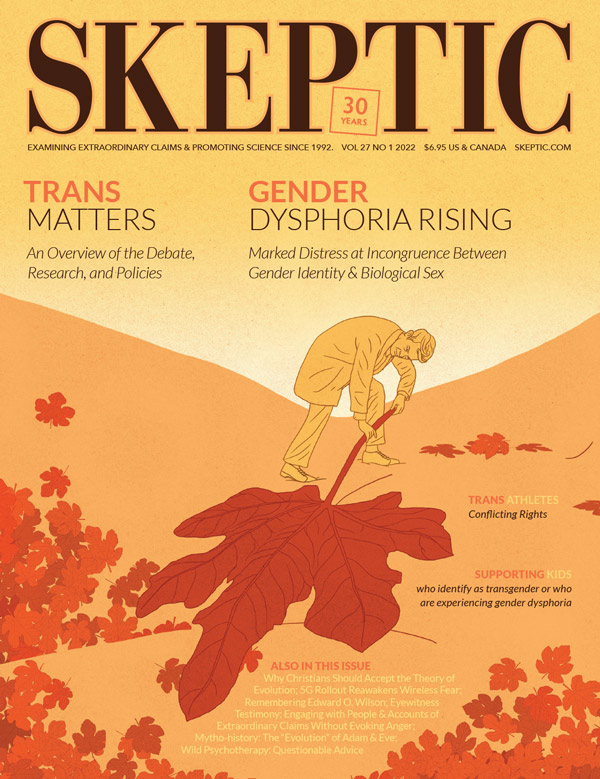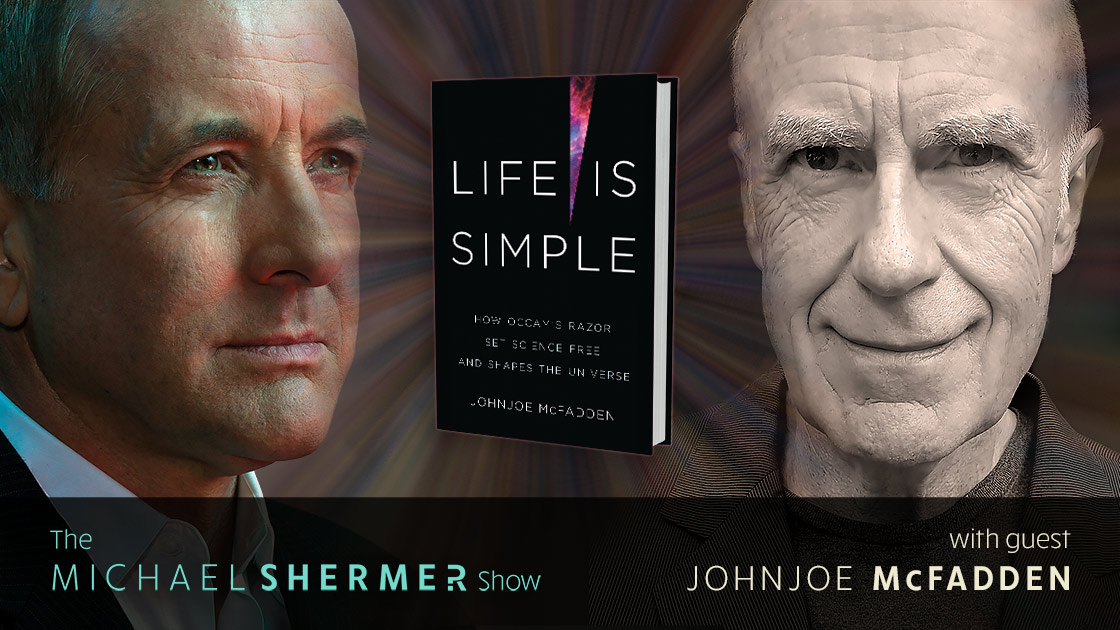Social psychologist Carol Tavris thoughtfully explores and questions “affirmative trans medicine,” the latest dangerous medical practices bubble. Few question the mystifying explosion of cases of gender dysphoria among adolescents and the proliferation of clinics to treat them. Vulnerable teens and baffled parents resort to internet misinformation and succumb to biased media influence, while experts spurn exploratory therapies and promote untested treatments that have long-term effects. Dissenters are vilified and silenced as being transphobic.
This article is one of several that will appear in the March 2022 issue of Skeptic magazine (27.1): Transgender Matters: An Overview of the Debate, Research, and Policies. Don’t miss this issue! Subscribe to Skeptic now.
Trans Reality
“I Didn’t Know There Was Another Side”
American culture is prone to psychological and medical contagions. An idea catches fire, seeming to be a plausible and important explanation of a familiar problem — depression, anxiety, eating disorders, sexual dissatisfaction. The idea outruns evidence. Experts emerge to treat people suffering from the problem, exploiting the most credulous. They open clinics. They give prestigious lectures and write books. They make fortunes. They blur the diverse possible origins of a person’s difficulties, attributing them all to the latest explanation.
Throughout the 1980s, the hot explanation was childhood sexual abuse: you have an eating disorder? Your father (or grandfather, or uncle, or close family friend) probably molested you. You don’t remember that? You repressed the memory. In the 1990s, it was Multiple Personality Disorder: your other personality remembers the bad stuff; let me give you a little sodium amytal to bring it out. In the 2000s, it was PTSD (Post Traumatic Stress Disorder), said to apply to all traumatic experiences from war to an unwanted touch on the shoulder. Tearful sufferers tell horrific personal stories, and who could doubt them? Who wants to be accused of being misogynist, antifeminist, or simply cold and heartless?
In the case of the recovered-memory epidemic, for example, many state legislatures, confronted with countless stories of repressed memories of sexual abuse, began expanding the statute of limitations, permitting lawsuits to be filed against alleged perpetrators from years since the abuse occurred to years since the victim remembered the abuse. The door was thus opened for people to sue their fathers, priests, teachers, and neighbors 20, 30, and even 40 years later, and they swarmed through. “We didn’t know there was another side,” said an Illinois legislator, explaining the haste to extend the statute of limitations. There was.
I am old enough to have lived through too many of these social contagions, seeing how they rise, generating more and more believers and patients while trampling skeptics and doubters; and how, over time, as patients’ symptoms worsen, as cases of family devastation escalate, as recanters begin telling their stories, we start hearing the other side — from researchers, practitioners, and intrepid journalists.
Today, once again, the public is hearing only one side of an emotionally compelling issue: the transgender story. Once again, distinctions are ignored, this time between people for whom identification with the other sex began in early childhood and those whose rapid onset gender dysphoria started during adolescence. Yet the difference between the two groups is itself a fascinating and puzzling phenomenon. Historically and cross-culturally, it is not uncommon for some very young children, mostly boys, to reject their natal sex early on and grow up to be gay or to live in an official, socially accepted category, a “third sex,” such as berdache among Native Americans (the term is now “two-spirit”), hijra in India, muxe in southern Mexico. But the last decade has seen an explosion of rapid onset gender dysphoria, which is occurring mostly among adolescent girls who are unhappy with their bodies and their sexuality and are persuaded that this discomfort is a sign they might be transgender. […]
EPISODE # 244
Johnjoe McFadden on simplicity in science, based on his book Life is Simple: How Occam’s Razor Set Science Free and Shapes the Universe
Centuries ago, the principle of Ockham’s razor changed our world by showing simpler answers to be preferable and more often true. In Life Is Simple, scientist Johnjoe McFadden traces centuries of discoveries, taking us from a geocentric cosmos to quantum mechanics and DNA, arguing that simplicity has revealed profound answers to the greatest mysteries. In McFadden’s view, life could only have emerged by embracing maximal simplicity, making the fundamental law of the universe a cosmic form of natural selection that favors survival of the simplest.
Shermer and McFadden discuss: from what was science set free?; what William of Occam’s razor cut; Bayes’s probability razor; Ptolemaic vs. Tychonic vs. Copernican world systems in terms of simplicity; simplicity in math, physics, biology, medicine, and the social sciences; Einstein’s razor: how does relativity theory simplify the universe?; Postmodernism and the search for Truth; McFadden’s explanations for solving the hard problems of consciousness, free will, and determinism, and more …
If you enjoy the podcast, please show your support by making a $5 or $10 monthly donation.











